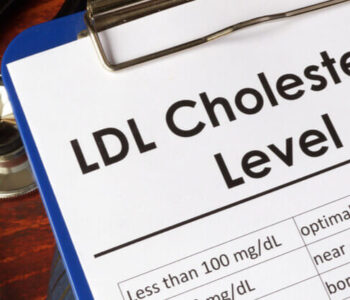In 30 seconds…
Fish oil contains more healthy omega 3 fatty acids than cod liver oil. Most health organisations, including the NHS, recommend you choose fish oil over cod liver oil. Omega 3 fatty acids help prevent heart attacks and lower blood pressure.
Fish Oil or Cod Liver Oil?
There was a time when omega-3 was all the rage. The superfood hype may have passed, but the benefits of these crucial fatty acids remain.
Two of the best-known sources for omega-3 are fish oil and cod liver oil supplements. What’s the difference? If we’re totally accurate, cod liver oil is a specific type of fish oil, with a different nutritional profile and different effects for you. However, if you’re aiming to up your omega-3 intake, fish oil is a better bet.
So, what’s the difference between these two supplements, omega-3 and cod liver oil? Let’s find out.
What Actually is Omega-3?
Let’s take it from the top. Omega-3 is the name for a group of polyunsaturated fatty acids that primarily offer benefits to your cardiovascular health, but also to your immune system, memory, and mood.
Omega-3 is made of 3 types of fat that combine to boost your health:
- Alpha-linolenic acid (ALA). This one is a fat you need in your diet, as it helps you produce the following two:
- Eicosapentaenoic acid (EPA) and docosahexaenoic acid (DHA). These are your omega-3 fats proper, which both cod liver and fish oil supplements contain. While your body makes them, it does so very slowly – and you don’t produce all you need.
- DHA is thought to be the most important omega-3 acid, as its benefits are seen in various parts of your body, from your brain to the retinas in your eyes.
Ultimately, these fatty acids are vital because they help reduce inflammation – one of the major biological triggers of heart disease. But they have some other benefits too.
What Does Omega-3 Do?
While research is still ongoing, there are suggestions that omega-3 can help some key aspects of your health:
- It reduces cholesterol. There’s evidence that moderate omega-3 consumption can lower triglyceride levels, the fatty substance in your blood associated with cholesterol.
- It’s an anti-inflammatory. Thanks to its ability to reduce inflammation, omega-3 may reduce the risk of cardiovascular disease, depression, and some autoimmune diseases such as rheumatoid arthritis.
- It boosts the immune system. Studies have long noted the impact of omega-3 on immune system function. Discoveries in this field continue to be made.
- It may help eye health. Opticians often recommend omega-3 to patients, but more research is needed to discover its full effect.
By the way, the benefits of omega-3 are best experienced as part of a healthy balanced diet. While supplements can help, they’re no replacement for a healthy lifestyle.
How Much Omega-3 Do You Need?
Recommendations from Heart UK state you should be getting 500mg of EPA and DHA combined per day. Similarly, the Association of British Dietitians recommends a daily 450mg of these essential fatty acids to feel their full health benefits.
This equates to about 140g (about two portions) of fatty fish a week. Fatty fish includes:
- Salmon
- Mackerel
- Sardines
- Herring
- Trout
- Anchovies
- Crab
- Swordfish
White fish, including cod, haddock, plaice, and sole, contain some omega-3, but not as much as their fatty cousins.
If you’re not a fan of fish, you can support omega-3 intake by eating walnuts, flaxseed and rapeseed oil, which are all high in ALA.
Omega-3 supplements are a great source of these fatty acids too. However, ensuring you get the right one will be crucial to feeling its full effects.
Omega-3 vs Cod Liver Oil: Key Differences
The favourite type of omega-3 supplement is fish oil. This tends to come in capsules containing, you guessed it, oil from fatty fish. However, before this more effective supplement became widespread, many people sourced omega-3 from cod liver oil – thanks mainly to aggressive marketing campaigns supporting the product.
What’s the difference? Simply, cod liver oil is a form of fish oil. But its nutritional make-up makes it slightly less beneficial as an omega-3 source:
- Cod liver oil has less omega-3 than other fish oils. Fish oils are extracted from the tissues of fatty fish like tuna, herring, and mackerel. Cod liver oil comes from the white fish, cod, which has less omega-3.
- Cod liver oil often has more vitamin A than you need. Vitamins A and D accumulate in a fish’s liver. You should not consume more than 1.5mg of vitamin A per day. As a result, cod liver oil can be harmful if you take it regularly. This is particularly important if you are breastfeeding or pregnant.
The NHS recommends that if you take omega-3 supplements, you should avoid cod liver oil. While they used to be commonly taken to tackle rickets (vitamin D deficiency), the risk of vitamin toxicity makes them difficult to recommend.

Help your body fight the good fight
Supplements are all-important when it comes to keeping your health at its best. All our health supplements are formulated by our medical team and packed with the best ingredients out there.
Key Takeaways
So, omega-3 vs cod liver oil. What’s best? While cod liver oil is a popular source of omega-3, fish oil is preferable. That’s because it’s made from the tissues of fatty fish, where the concentrations of omega-3 are much higher than in white fish such as cod. Meanwhile, cod liver is very high in vitamin A, too much of which can cause health problems over time.
That said, it remains crucial to get enough omega-3 fatty acids in your diet. They help reduce inflammation, tackle triglycerides, and can improve heart health, vision, and your immune system. If you don’t want to add fish to your diet, omega-3 supplements can help.
FAQs
What is Omega 3?
Omega 3 is a group of fatty acids which help lower cholesterol and reduce the risk of heart disease. Omega 3 fatty acids are found in abundance in fish oils, like cod liver oil.
What does Omega 3 do?
Omega 3 fatty acids promote good eye health, help to reduce cholesterol, boost the immune system, and are also an anti-inflammatory.
How much Omega 3 do I need?
You need between 450-500Mg of Omega 3 supplements per day, or about 140g of fatty fish a week. Fatty seafood includes salmon, mackerel, sardines, herring, trout, anchovies, crab, and swordfish.
What’s wrong with cod liver oil?
There’s nothing wrong with cod liver oil, but it’s not as good for you as fish oil. Cod liver oil doesn’t contain as much Omega 3 fatty acids as other fish oils, and tends to contain more Vitamin A than you need in your diet (which can be especially dangerous for breastfeeding or pregnant women).












